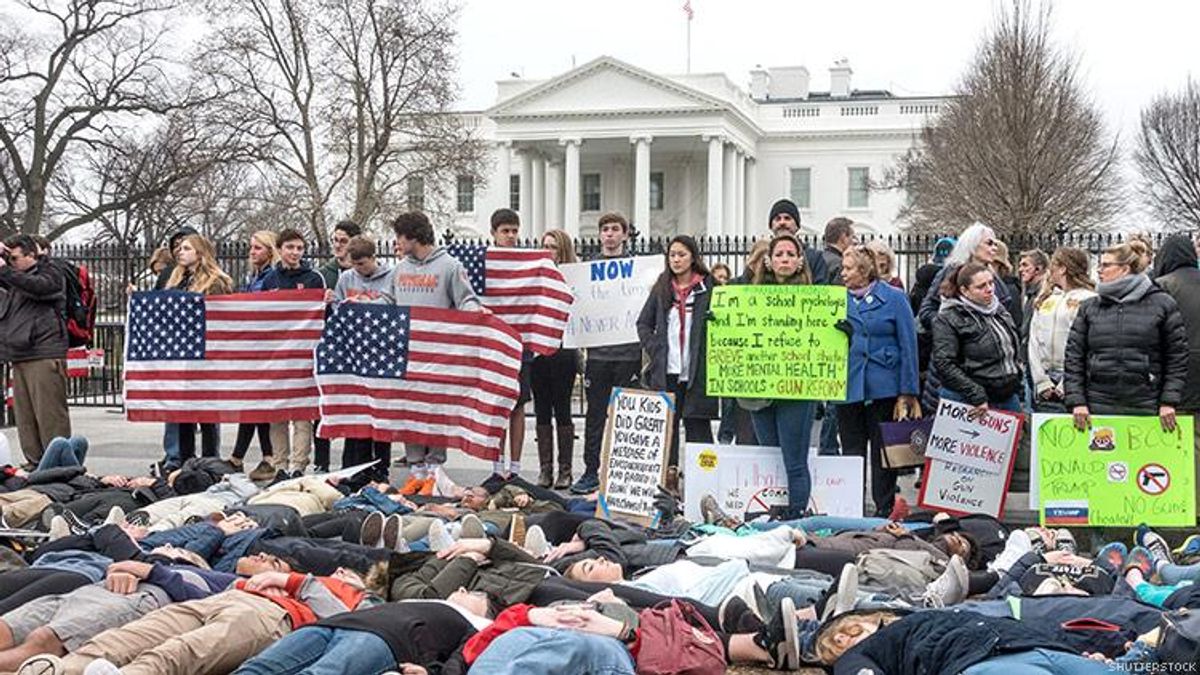Voices
11 Ideas on Stopping Violence From a Gun-Owning Gay

R. Kyle Alagood owns firearms and supports strong gun safety laws.
February 22 2018 12:03 AM EST
October 31 2024 6:27 AM EST
By continuing to use our site, you agree to our Private Policy and Terms of Use.

R. Kyle Alagood owns firearms and supports strong gun safety laws.
The United States is a nation built on ideas -- and compromise. When most of us sit down face-to-face with our neighbors, we tend to find common ground on even the most divisive issues. I believe our country remains a land in which civic discourse can solve even the most difficult problems. But we have to start the conversation with ideas.
In the wake of another school shooting, this one at Stoneman Douglas High School in Parkland, Fla., the time has come for ordinary people to solve the extraordinary problem of gun violence in the United States. Unfortunately, hyperpartisanship fueled by social media and 24-hour news has driven people apart instead of bringing them together. Too many people are clothed in ideology but bereft of ideas, so I will attempt to jump-start the conversation.
None of these ideas is original, but many have collected dust over the years. None of these proposals would solve all our problems, but perhaps we can save at least one life (and wouldn't that be worth it!). None of these suggestions is perfect, but each has significant reasons for us to support it. Making the United States safer and passing reasonable gun safety measures does not have to be hard, but it requires us to honestly explore the ideas without hiding behind political ideology. So, in the spirit of honesty, I have a few disclosures. First, I grew up in a home with firearms. Second, I own handguns, which are stored in a steel safe with a combination lock at my family's home in Louisiana. Third, I support strong gun safety laws.
Now that my disclosures are out of the way, here are some ideas that I have found useful when discussing what I believe is our nation's failure to regulate firearms reasonably well.
1. Before a person can buy, trade, donate, receive, or otherwise transfer a firearm, they should be required to purchase liability insurance. This should apply whether the firearm is new or used. (States already do this for cars.)
2. There should be a national firearm registry. All new purchases, used purchases, person-to-person transfers, donations, etc. should be mandatorily registered. The federal registry should be executed by local law enforcement, in compliance with constitutional limits. (States already do this for cars.)
3. There should be a rebuttable presumption of liability if a gun registered to a person causes harm to a person or property. (Many states already do this for rear-end collisions in cars.)
4. Before purchasing or otherwise receiving a firearm, a person should be required to go through a universal background check that includes screening Social Security disability recipients who have been deemed incapable of managing their own affairs.
5. Before purchasing or otherwise receiving a firearm, a person should be required to prove they have completed a firearm safety training course and satisfactorily passed a written and practical exam. (States already do this for cars.)
6. There should be a cooling-off period of at least five days between the purchase of a firearm and the date on which you are able to leave the store with the firearm. (Some states already do this for marriage licenses.)
7. "Assault"-style weapons should be prohibited for civilian ownership, transfer, or possession.
8. All firearms, including handguns, should have a limited capacity of six rounds. (The Colt 1860 Army, the godfather of handguns, was a six-shooter.)
9. Sales of ammunition should be limited, and it should be unlawful to hoard ammunition in large quantities.
10. There should be a national firearm buy-back program, wherein local police departments are given prepaid credit cards to trade for firearms, starting with a program for AR-15-style weapons. Police will then render the guns inoperable and melt them down or drill them out.
Bonus. If the brave young people who survived the shooting at Stoneman Douglas High School in Parkland have taught us nothing else, it's that the country should consider lowering the voting age. Young people have a stake in the affairs of our nation, and they are capable of contributing to our civic discourse.
R. KYLE ALAGOOD is a lawyer and public policy scholar from Harrisonburg, La.
Viral post saying Republicans 'have two daddies now' has MAGA hot and bothered